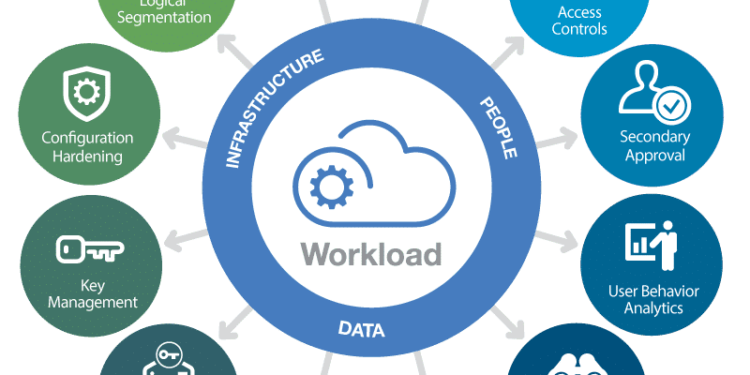Benefits Of Cloud Integration For Businesses
In today’s business world, many operations are going digital. Whether it’s sales, customer service, or marketing, more systems are being moved to the cloud than ever before.
This trend, also known as “digital transformation”, comes with some challenges that companies need to be aware of. One major challenge is cloud integration.

1. Streamlined Processes
In the future, companies with fully integrated cloud systems will have better processes that are easier to maintain. This will reduce the need to manually perform integration tasks, which can be time-consuming and prone to errors.
Cloud integration also allows businesses to easily scale their software and hardware needs. For example, if a company isn’t using all of its storage space, they can modify their cloud package to decrease storage and save money.
This process will allow teams to work more efficiently, so they can spend less time searching for data and more time analyzing information and real-time reporting. This can help increase productivity and customer satisfaction, as well as save on maintenance costs.
2. Better Communication
In a business, effective communication is critical to productivity. When systems are integrated through cloud integration, employees can access real-time data without having to sift through multiple applications. This allows for quicker problem resolution, better decision-making and more efficient processes.
As a result, companies can improve customer service and experiences. This can lead to higher retention rates and growth as customers return to your brand.
A business can also save money by avoiding unnecessary costs. Companies can easily modify their cloud package to suit their needs and avoid paying for unused storage space.
3. Increased Efficiency

When you use cloud integration systems, it is easy to make processes run more efficiently. For example, you can eliminate any delays caused by the amount of data that needs to be moved over a network.
Using cloud integration services also makes it easier to access data from anywhere. This means that employees can work from home or on the go without affecting business operations.
In short, cloud integration can help businesses increase efficiency by streamlining their internal processes and improving communication. This is essential to building a more cohesive company that can provide better customer service and grow faster than its competitors.
4. Greater Flexibility
A flexible business can adapt to changing circumstances, allowing it to remain competitive in the market. It can also make faster decisions, reducing downtime and maximizing productivity.
Cloud integration helps businesses democratize information and remove data silos. It also makes it easier for employees to access the data they need without having to sift through multiple applications.
Another benefit of cloud integration is that it can help reduce technical issues. If one software program is having an issue, it won’t affect the rest of the applications on a company’s computer. This can save a lot of time and money.
5. Better Data Accessibility
Cloud integration allows different teams and departments to access the data they need without sifting through multiple applications. This makes it easier for them to make informed decisions and boosts productivity.
For example, if you embed a dashboard in a popular tool like Salesforce, your sales development reps will be able to see relevant data about a lead even while they’re on the phone with that prospect. This ensures that everyone can make data-driven decisions and thrives.
Additionally, you can scale services and tailor packages to fit your business’s needs. This helps reduce expenses and prevents companies from overpaying for features they don’t use.
6. Scalability
Scalability refers to the ability of a business or software to adapt to changing demands. It’s an important factor in business success, as it ensures that companies can meet customer and market needs.
Using cloud integration software helps to improve communication between different applications, which can help to streamline processes and increase productivity. It also reduces technical issues that may arise when employees are working on different programs at once, such as data conflict or redundancy.
Many cloud integration solutions are scalable, meaning that they can be modified to suit a company’s needs. This is ideal for businesses that experience a lot of growth or sudden bursts in activity.
7. Greater Security
As businesses become more digitized, the number of hardware and software programs being used within an organization increases. Cloud integration helps to streamline these processes by making it easier to access and connect all of the different software applications that are being used.
This allows teams to communicate more easily, providing better customer service and increasing efficiency. Additionally, it also reduces technical problems that can occur when using a program that isn’t integrated properly.
Another benefit is the greater security that can be offered through cloud integration solutions. Instead of saving all data on physical machines, which can break down or lose information, the cloud provides an additional layer of protection for companies. Read more








































